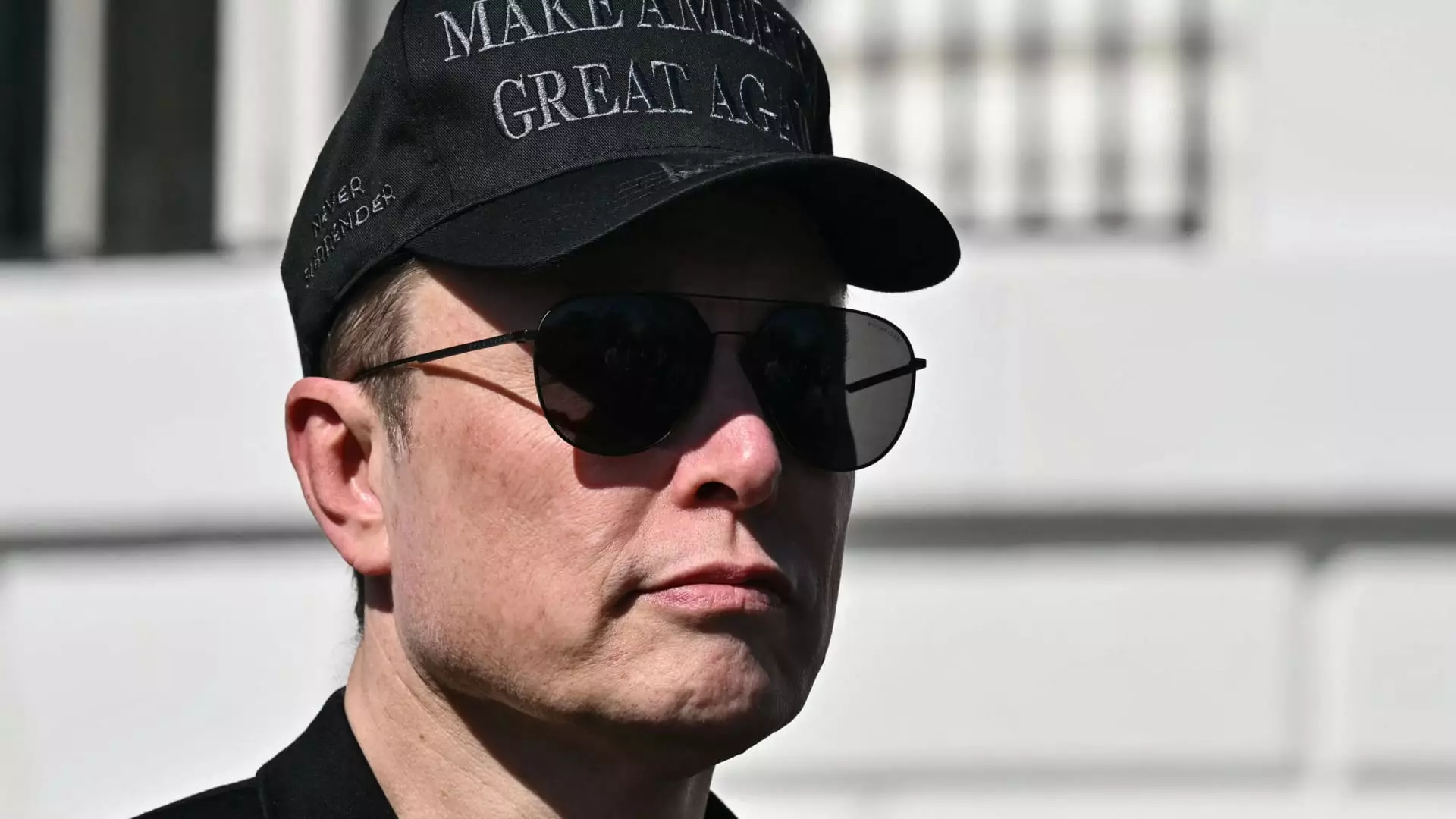In a world where business magnates wield considerable influence over public discourse and policy, Elon Musk remains an undeniable titan of the tech industry. However, the recent legal troubles he is engulfed in reveal the precarious balance between ambition and accountability. Last week, a court summons was delivered to Musk regarding the Securities and Exchange Commission’s (SEC) lawsuit, alleging that he failed to disclose his significant stock purchases of Twitter (now known as X) prior to engaging in its acquisition in 2022. This situation has triggered critical questions concerning transparency and ethical standards in corporate governance.
Musk’s court summons traces back to March 14, when a process server attempted to deliver the documents at SpaceX’s headquarters in Texas. The interaction became a spectacle in itself, as three security guards rebuffed the process server, indicating a level of defiance that only adds to the drama surrounding Musk’s public persona. The server ultimately left the documents on the ground, an act emblematic of Musk’s motto of pushing boundaries, both legally and socially.
The Delicate Dance with Disclosure
Central to the SEC’s accusations is the claim that Musk built up a 5% stake in Twitter without timely disclosure—a breach that could have severe implications. The SEC contends that by delaying this crucial disclosure beyond the requisite ten-day window, Musk not only compromised the integrity of market information but also potentially saved $150 million by manipulating the timing of his purchases. This alarming revelation raises ethical concerns surrounding how privilege and power can influence market fairness.
A robust market requires transparency, and shareholders deserve to have access to accurate information that could influence their investment decisions. Musk’s possible oversight—or intentional disregard—of these regulations should provoke a reckoning in a society that often neglects the consequences of corporate malfeasance. Musk’s saga urges a reevaluation of the thresholds for accountability not just for him, but for all those high-flying executives who often operate under a distinct set of rules.
A Broader Context of Regulatory Erosion
The situation takes on additional layers when viewed through the lens of regulatory dynamics under the Trump administration. Reports indicate that recent directives have led to significant budget cuts within independent federal agencies like the SEC. Musk’s case becomes emblematic of broader patterns where influential figures may pocket undue advantages amidst a backdrop of regulatory weakening, raising questions about the safeguards meant to protect public interests.
The SEC has undergone transformations that nearly paralyze its investigatory abilities, with operational changes mandating more bureaucratic hurdles before pursuing formal investigations. Such impediments, coupled with the highly publicized relationship between Musk and Trump, highlight a troubling intersection of politics and big business that could stymie justice for ordinary investors.
The Tenuous Balance of Influence
Musk’s influence transcends the boundaries of his companies, infiltrating political spheres where he has ardently supported presidential candidates like Donald Trump—financially backing efforts to bolster conservative agendas despite his position as a technology innovator. With Musk’s reported contributions totaling $290 million, the implications are hard to ignore. There exist a responsibility and a cautionary tale in this intricate web of technological prowess and political ambition.
The public’s fascination with Musk should not overshadow the fact that he remains accountable to the same laws that govern other individuals and companies. His penchant for operating in a space that often flouts regulatory expectations breeds an environment where investors may feel their stakes are subordinate to the whims of individual executives.
The Road Ahead: Navigating the Legal Labyrinth
As the SEC presses forward with its lawsuit, Musk is tasked with formulating an effective legal strategy by April 4, a deadline that looms large on the horizon. It is unclear how this latest legal challenge will unfold, but the potential consequences for Musk are undeniably substantial. High-profile figures like him may navigate a complex legal landscape, yet they must grapple with the repercussions of their actions—not merely for their own sake, but for the integrity of the larger economic framework in which we all operate.
Musk may be known for defying convention, but this latest chapter illustrates that even the most formidable individuals must reckon with accountability. The intersection of ambition and ethics demands careful navigation, and the outcome of this case stands to impact not just Musk, but the future of corporate governance as a whole.

